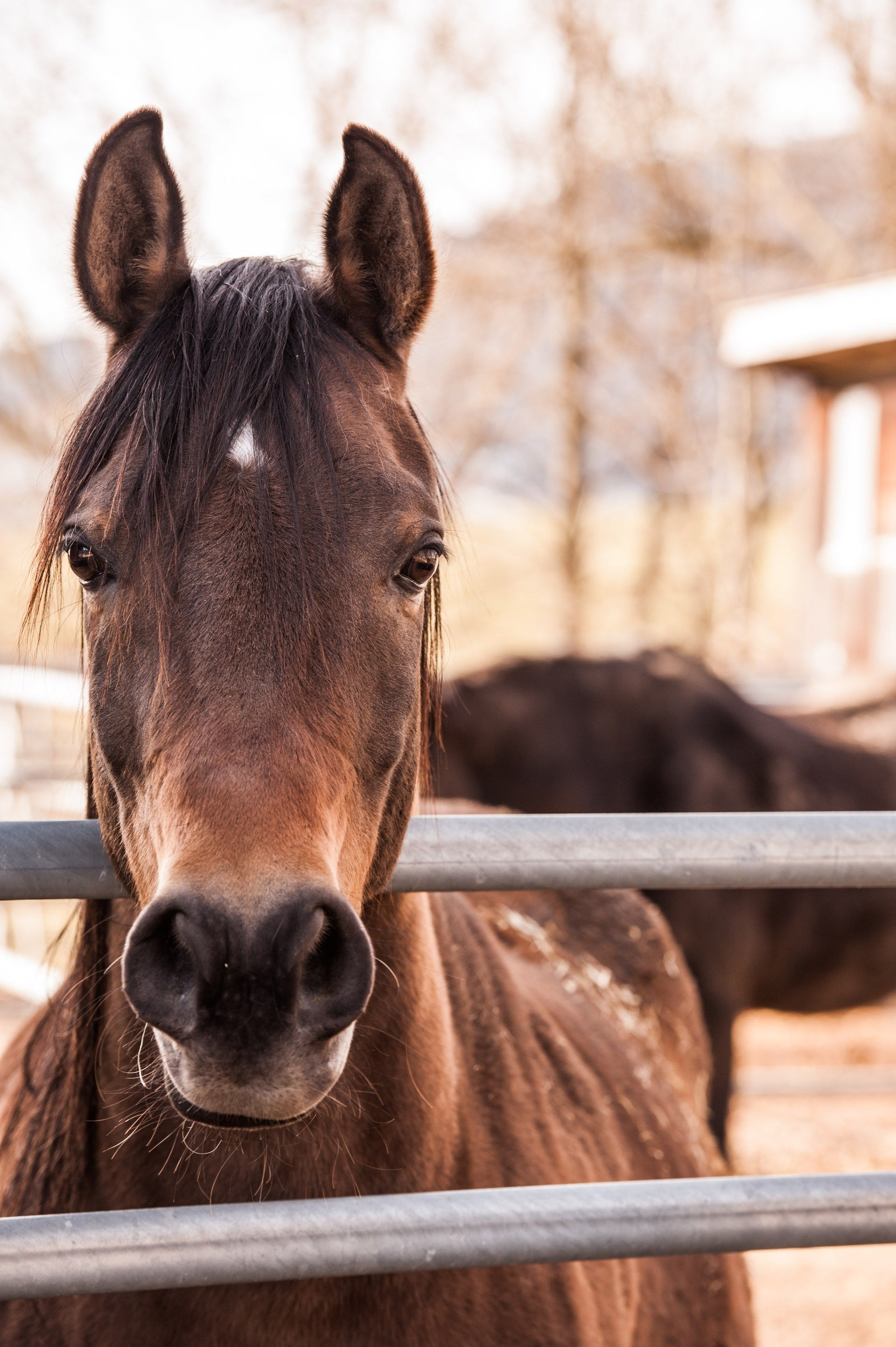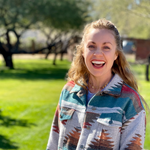What’s My Horse’s Age in Human Years?
August 13, 2020

Published: August 2020 | Updated: August 2022
*Hint: It’s more nuanced than a horse teeth age chart*
There’s a lot of information out there about your dog’s age in human years. Science has determined that it’s a little more complicated than the common knowledge of multiplying by 7.
Turns out, there’s much more nuance when it comes to calculating your horse’s “human age” too.
Obviously, horses and humans mature at different rates. For example, a newborn foal should stand up and walk within 3 hours of being born, in comparison to human babies, which only begin walking at about 1 year of age!
Calculating Horse Age to Human Age
There’s not just one horse age chart or calculator to answer this question, as each horse is an individual, so it’s important to not take this too literally. Just like humans, each individual horse will age at a slightly different rate than another.
Even so, one estimate that equine veterinarians have come up with for determining a horse’s age in human years is this:
- 6.5 human years for each horse year from birth up to age 4
- 2.5 human years for each horse year starting at age 4
Let’s say your horse is 15 years old.
6.5 x 3 years = 19.5 human years
2.5 x 12 years = 30 human years
Your 15-year-old horse is 49.5 in human years! Time to start planning that big milestone birthday party...
The Average Age of a Horse
The average lifespan of a domestic horse is between 25 and 33 years. Different factors play into this, including nutrition, management, preventative care, breed and size, to name a few.
Smaller horse breeds (like ponies) typically mature faster and have a reputation for living longer, sometimes into their 40s (in horse years!), while larger breeds (like Warmbloods) typically require more time for maturation and development.
At What Age is a Horse Considered a Senior?
Some experts make the cut-off at 20 years old, however, many equine nutritionists consider older horses “senior” when they have trouble maintaining body condition on their normal diet of hay and grain. This usually happens due to dental issues (horses having a hard time chewing hay as they age).
Senior horse feeds are typically complete feeds, meaning that they contain forage, and are designed to be fed as a stand-alone diet, without hay.
If your horse is still able to chew well, eat hay, and maintain their body condition, don’t worry about the “cut-off” age for classifying your friend as a senior. Your horse’s age is just a number after all. Keeping your horse on a diet that is closest to nature for as long as possible is the best way to maintain quality of life.
Healthy as a Horse: Extending the Number of Years in Your Horse’s Age
It’s not just about calculating horse age in human years or the lifespan of a horse; it’s about extending the life in your horse’s years! So how can you promote healthy horse aging?
1) Feed your horse at an optimal rate at every stage, according to their exercise level, phase of development, and weight. Overfeeding can lead to developmental diseases in young horses that affect the horse’s performance for their entire lives and can have negative consequences such as laminitis, insulin resistance, and potentially colic, as the horse ages.
Use the horse body condition score guide to keep tabs on your horse’s weight throughout their lifetime. Aim for a body condition between 4 and 6, depending on your horse’s job and health status.
2) Regular equine management practices. Prioritize semi-annual preventive measures, including vaccinations, dental care, and regular deworming, which all play a major role in your horse’s longevity.
It is worth noting that equine dental care in the golden years is especially important. Many senior horses require more frequent dental exams than they did when they were young and it is a good idea to have a minimum of two visits from a qualified equine dental specialist per year.
Additionally, keeping your horse on a consistent schedule with the farrier is critical for hoof and joint health, as well as overall soundness and comfort.
3) Keep them active. It is important to keep older horses moving, whether that is for light hacks under saddle, easy trail rides or regular turnout. No matter the form of exercise, it is critical for a healthy musculoskeletal system as well as mental stimulation.
4) Protect the gut microbiome. Many horses' lives are cut short due to digestive problems, which can happen at any age. We’ve all heard the horror stories. As horses age they may be more susceptible to stress, travel or extreme weather changes, which can negatively impact the GI tract.
One of the best preventive care measures you can take as a loving horse owner is to feed your horse a high quality equine probiotic supplement.
5) Hone your observational skills. This is important with every animal, but as horses (and humans) age, the effectiveness of the immune system also decreases. Since a senior horse’s health can change quickly, it is super important to pay attention if anything seems “off” and call your veterinarian for care sooner rather than later. Remember, you know your horse best and can be their advocate through their entire life.
Your horse’s age in human years is less important than their quality of life. Before you pull out the teeth aging chart or horse age calculator, follow these steps and they’ll be aging backwards in human years before you know it!
Read More:

